Thousands in New Brunswick cast ballots in Saturday's advance poll
Second day of advance polling for Oct. 21 provincial election will be held Tuesday
Elections N.B. says 56,739 voters cast ballots Saturday on the first day of advance polling for the Oct. 21 provincial election.
Total votes cast to date total 73,291. That's out of 568,901 eligible voters, representing 13 per cent voter turnout so far.
A second day of advance polling will be held on Tuesday.
Despite wet weather, people lined up at many polling stations before they opened at 10 a.m., said Elections N.B. spokesperson Paul Harpelle.
 Blaine Higgs, leader of the Progressive Conservatives, cast his ballot in Quispamsis on Saturday. (Victoria Walton/CBC)
Blaine Higgs, leader of the Progressive Conservatives, cast his ballot in Quispamsis on Saturday. (Victoria Walton/CBC)
"The turnout for day one of advance voting reflects the continuing trend of electors taking advantage of early voting opportunities in elections," he wrote in an email to CBC.
"That includes more people voting at returning offices, which are open six days a week during the election period."
Higgs, Holt cast ballots
Blaine Higgs and Susan Holt both voted on Saturday, while David Coon has opted to wait until election day.
 Liberal Leader Susan Holt cast her ballot in Fredericton on Saturday. (Babatundé Lawani/Radio-Canada)
Liberal Leader Susan Holt cast her ballot in Fredericton on Saturday. (Babatundé Lawani/Radio-Canada)
Without much notice, the Progressive Conservatives released their platform just hours after Higgs cast his ballot.
Voters speak out
Danny Dobson, who voted in Quispamsis on Saturday, said he wanted to "get the job done right out of the shoot."
"This is a huge election for New Brunswick," he told CBC News outside the polling station.
 Danny Dobson cast his ballot in Quispamsis on Saturday. (Victoria Walton/CBC)
Danny Dobson cast his ballot in Quispamsis on Saturday. (Victoria Walton/CBC)
He said the most important issue for him this election is fiscal management.
"We got to keep things going the way they're going and keep the province running right." he said. "It's a business and we got to make sure the person in there is running our business right."
Connie and Robert Donnan also took advantage of early voting in Quispamsis on Saturday.
"It's our civic duty," Connie Donnan told CBC News outside the polling station.
Robert Donnan said parental rights are top of mind for him during the election.
"I'm for parents and involvement," he said. "We want our voice to be heard."
 Connie and Robert Donnan took advantage of early voting Saturday — something the couple says they usually do. (Victoria Walton/CBC)
Connie and Robert Donnan took advantage of early voting Saturday — something the couple says they usually do. (Victoria Walton/CBC)
After Tuesday, the next chance for people to vote at the polls will be election day. People are able to vote at any returning office in the province at any time during the campaign.
Returning offices also offer additional accessibility measures, such as audio voting for people with visual impairment.
With files from Victoria Walton and Radio-Canada
Aging in place is a big priority for seniors. They think it should be for politicians, too
Seniors' advocates want to see meaningful change in how long-term care is delivered
Roberta George knows she's one of the lucky ones.
She lives in a downtown Fredericton home that she shared with her late husband for more than 50 years. She loves downtown living and has carried on enjoying the house, thanks to some renovations they did a few years ago.
George said they built an addition to the back, adding a bathroom and a primary bedroom, so that the stairs were no longer necessary after her husband had a couple of major operations. She's also benefited from the changes, after a recent knee replacement.
"It's our home. It's always been our home," she said. "My husband was a wonderful husband and friend to many. I want to stay here where all my memories are."
She's lucky to have lots of family nearby and nice neighbours who check on her. But she knows many others aren't as fortunate, and said "it's a sad day for a lot of them" when they have to leave their home.
Nearly one in four New Brunswickers are aged 65 or older. And if you ask a senior what their biggest concern is, living arrangements would typically top the list.
But there are more than a few barriers for people hoping to keep their independence as their health declines. And accessibility is a big one.
 Keswick
Ridge's Justin Doran has been busy working for seniors since the day he
started and has been unable to keep up with demand. (Allyson McCormack/CBC)
Keswick
Ridge's Justin Doran has been busy working for seniors since the day he
started and has been unable to keep up with demand. (Allyson McCormack/CBC)
Justin Doran hears that a lot. He's a contractor in Keswick Ridge, near Fredericton. He started Ridge Seniors Home Maintenance two years ago with a focus on helping seniors retrofit their homes. He had no idea just how busy he would quickly become.
"I was very surprised," he said. "I knew there was a need for it, but I didn't know there was this much of a need."
Lining up a a contractor is one thing. But Doran says the seniors he works for face another challenge: paying for the work.
There are provincial and federal programs out there to help and he has those links on his website. But Doran said they are so cumbersome that his clients often have trouble just filling out the forms.
When they do qualify, it can take months to process the application, which covers only a fraction of the work. It's an overwhelming process, even for the simplest of jobs, he said.
"In some cases it's bringing the washer and dryer up on the main level or installing hand rails. Some projects are so little, but they need them desperately just to be able to function day-to-day."
Doran would like to see the province make it easier for seniors to access that support by eliminating red tape and fast-tracking payments so people aren't backed into a corner.
"There's definitely fear in seniors out there because they see the price of labour and contractors go up. And with their fixed income not going up, it's definitely a huge challenge for them. And I can tell by the clients that I talked to, they're overwhelmed, they're stressed, they're scared. And they would like a solution."
Back in March, the province's seniors' advocate released a report entitled, What We All Want, outlining his solution, calling for urgent action in long-term care.
 Seniors' advocate Kelly Lamrock released a report in March calling for urgent action in long-term care. (Ed Hunter/CBC)
Seniors' advocate Kelly Lamrock released a report in March calling for urgent action in long-term care. (Ed Hunter/CBC)
Kelly Lamrock and his team spoke with hundreds of New Brunswickers, including more than 50 experts, to come up with a number of recommendations on how to improve the current system.
Among other things, it found that "in-home supports are by far the least costly intervention moving up through the system, and yet home support is hard to access due to the current model that incentivizes institutional care."
In fact, it found that 20 per cent of seniors in residential care settings are only prevented from aging in place due to a lack of availability or access to community supports or programs.
The report said that "aging at home is not only what seniors desire … but also that there are multiple downstream benefits both to the community and to the healthcare system overall," including alleviating unnecessary strain on emergency and hospital infrastructure.
Ken McGeorge says he often hears how 'unbelievably and unnecessarily complicated' it is to access proper care. (Vanessa Blanch/CBC)
Ken McGeorge knows these issues well. He spent more than 50 years working in health and long-term care in three different provinces. He was also one of 11 advisory committee members who contributed to the report.
He often hears from elders and their families about how "unbelievably and unnecessarily complicated" it is, trying to access proper care. But he said it doesn't have to be that difficult.
McGeorge wants to see the next provincial government gather a group of experts, or "rock stars" as he says, to dive into Lamrock's report and "create a plan based on expertise" and commit to doing it by Christmas, or by spring.
 Liberal
Leader Susan Holt has promised to increase wages for personal support
workers and expand a program called Nursing Homes Without Walls, which
helps seniors stay at home longer. (Guillaume Aubut / Radio Canada )
Liberal
Leader Susan Holt has promised to increase wages for personal support
workers and expand a program called Nursing Homes Without Walls, which
helps seniors stay at home longer. (Guillaume Aubut / Radio Canada )
And he wants to see it addressed by people who know, and who really understand.
"Politicians don't, civil servants don't," he said.
Liberal Susan Holt released a plan recently aimed at seniors and their families. Some of those promises include increasing wages for personal support workers, and expanding a program called Nursing Homes Without Walls, which puts more supports in place to help seniors stay at home longer.
 Green Party Leader David Coon says it's been a challenge for many of his constituents to stay in their homes as they age. (Ed Hunter/CBC)
Green Party Leader David Coon says it's been a challenge for many of his constituents to stay in their homes as they age. (Ed Hunter/CBC)
Green Party Leader David Coon also said he wants to expand the Nursing Homes Without Walls program and would roll out an effective dementia strategy, which he said the Liberals and PCs both promised and failed to deliver.
Progressive Conservative Leader Blaine Higgs wasn't made available to talk about the recommendations, or what his government would do to support seniors if re-elected.
 Progressive Conservative Leader Blaine Higgs was not made available to comment for this article. (Pat Richard/CBC)
Progressive Conservative Leader Blaine Higgs was not made available to comment for this article. (Pat Richard/CBC)
As for Roberta George, she said it would make her "heart feel good" if the next government would take action and step in to provide this type of support for those in need.
She wants to see seniors have peace of mind and good care.
PCs unveil platform, pledge $26M in spending on long-term disability for nurses
'No one, I think, can deny we have a record to run on,' says Blaine Higgs
The Progressive Conservative party issued its election platform on Saturday evening, shortly after pledging $26 million in long-term disability funding for nurses.
The two-page platform includes one page of campaign promises already announced, including a reduction in the harmonized sales tax to 13 per cent over two years. A second page lists highlights of Higgs's six years as premier.
It also reiterates earlier promises, such as expanding the scope of practice for nurses, paramedics and pharmacists, balancing the budget, forcing those with an addiction into treatment if they pose a danger to themselves or others, and litigating against title claims by First Nations.
The platform has an estimated cost of $1.7 billion over four years.
"No one, I think, can deny we have a record to run on," Higgs told reporters on Saturday. "Was I going to develop a platform to try to buy your vote? No. I believe we've developed a government. We have a government that has actually delivered."
Higgs's comments came the same day as promises to spend $26 million to cover 50 per cent of long-term disability premiums for registered nurses in the next two years and to strike a working group "to address working conditions in the nursing profession."
It was a change of pace for the PC leader, who spent his first three campaign weeks leaning on one big promise rather than making new commitments with new costs attached.
The promise also comes after union members rejected the last tentative agreement in September.
At the time, New Brunswick Nurses Union president Paula Doucet said there were some concerns around the long-term disability plan and benefits.
 Paula
Doucet, president of the New Brunswick Nurses Union, says a promise
from the PCs Saturday should have been part of pre-election bargaining
discussions. (CBC)
Paula
Doucet, president of the New Brunswick Nurses Union, says a promise
from the PCs Saturday should have been part of pre-election bargaining
discussions. (CBC)
Speaking with reporters after casting his ballot in Quispamsis Saturday afternoon, Higgs said he only became aware that long-term disability was a concern for nurses after the offer was rejected.
"We've heard the concerns, we understand that we must make an effort to try and fix this," he said. "It's a commitment from me personally, and it's a commitment of taking action that is meaningful and getting results."
Surprise, disappointment
But Doucet said she was surprised and disappointed by Saturday's announcement.
"I think it's too bad that we wouldn't have had these meaningful conversations before the writ dropped," she said in an interview. "There's been no shortage on my end of asking to have conversations with the premier."
Doucet worries the PC proposal is unlikely to work in practice because the plan is funded by nurses and other workers outside the profession.
"It's fully funded by the employees, and the moment that the employer starts to input money it changes the plan design," Doucet said.
"It would not only affect nurses but other unions and non-unionized workers that are in the plan. So I don't think Mr. Higgs can make that statement without actually knowing full well what our plan design is."
She's also skeptical about the proposed working group.
"It took the call of an election for him to actually speak directly to nurses," she said.
"He's been in power for how many years, and he didn't listen to anything that we were asking for up until this point, so why would this make it different?"
The PCs are the last of the parties with a legislature seat at dissolution to issue their platform, after the Liberals and Greens.
Candidates, voters weigh in on the fine art of door-to-door election campaigning
Some say a generational divide exists, but voters wanting accessible candidates is ageless
Linda Justason says she hasn't had anyone knock on the door of her Florenceville home during this New Brunswick election so far, but if someone did, it just might influence her vote.
"Then I'd have the opportunity to ask them the questions that I would like to ask that they haven't answered yet," she said.
But door-knocking by election candidates or their campaign workers can only go so far in influencing someone's vote, according to Alex Marland, a political scientist at Acadia University.
"Lots of research says that most voters vote based on the leader and the party, and so the local candidate matters a lot less," he said.
"People are socialized into voting for a party regardless of who the candidate is."
 Linda Justason of Florenceville says she would appreciate someone coming to her door to campaign. (Shane Fowler/CBC)
Linda Justason of Florenceville says she would appreciate someone coming to her door to campaign. (Shane Fowler/CBC)
That doesn't mean door knocking isn't important, said Marland.
While going door to door during campaigns was hugely popular in the late 20th century, as more and more attention was paid to leaders and related news coverage it started to be perceived as a "meaningless ritual."
Now the practice is enjoying a renaissance, he said.
"It's more than just getting election signs," he said. "It's about trying to find a competitive edge.… Knocking door to door used to all be done on clipboards, but instead, now people are able to use tablets and their phones, and information can go … into a database.
"Then you can use that for robo-calling, you can use that for email blasts, you can use that for texting. And so it really fits into a lot of the persuasion and mobilization of a campaign."
 Marland
says there isn’t much research on whether people will actually vote for
a candidate who canvasses their neighbourhood, even if they say the
interaction has changed their mind. (Acadia University)
Marland
says there isn’t much research on whether people will actually vote for
a candidate who canvasses their neighbourhood, even if they say the
interaction has changed their mind. (Acadia University)
With a provincial election coming up on Oct. 21 in New Brunswick, the longstanding tradition of door-knocking has been ongoing across the province for the last few weeks.
For voter Troy Spilman, who lives in the Fredericton area, the candidate matters more than the party.
Door-knocking might influence his vote, he said, "if the person was actually an individual and knocked on my door and had a real conversation and made it believable and didn't give me a bunch of cliches."
 Troy Spilman says he thinks the candidate matters more than the party. (Shane Fowler/CBC)
Troy Spilman says he thinks the candidate matters more than the party. (Shane Fowler/CBC)
Kris Austin, the PC candidate in Fredericton-Grand Lake, said for him, it's a way to get a direct message across with no filters, while also hearing from voters directly about what issues matter to them.
Generational perceptions
But is door-knocking received the same way by the youngest voters as it is by Generation X and Baby Boomers?
Astyr Johnson, a first-time New Brunswick voter, said if a politician took the time to come to his door during an election, it might have an impact on his vote.
 Kris
Austin, the PC candidate in Fredericton-Grand Lake, says that for him,
door-knocking is a way to get a message across with no filters. (Aniekan Etuhube/CBC)
Kris
Austin, the PC candidate in Fredericton-Grand Lake, says that for him,
door-knocking is a way to get a message across with no filters. (Aniekan Etuhube/CBC)
"As a student who doesn't really have a lot of time to just sit down and actually research into what each party is trying to enact or to develop with this election, it's pretty helpful to kind of get that right in front of you," they said.
But Johnson said that method might not work for every 18-year-old or Generation Z voter because there isn't a "cut or paste," one-size-fits-all method.
Austin said there is no question there are different ways to connect with different generations. The most important thing is to "make yourself accessible," he said.
"The younger demographic … some of them are fine with a, you know, Facebook message or a tweet, or, you know, maybe a direct text message of back and forth sort of thing.
"But what's not different is people do want to hear from their candidates. They want to hear what they think and what they plan on doing going forward."
 Astyr Johnson is a first-time New Brunswick voter who would like the chance to ask questions to a politician on their doorstep. (Shane Fowler/CBC)
Astyr Johnson is a first-time New Brunswick voter who would like the chance to ask questions to a politician on their doorstep. (Shane Fowler/CBC)
Liberal Leader Susan Holt also said door-knocking is an important part of campaigning because it allows candidates to connect with people outside their own network and can help remind them of what really matters to New Brunswickers.
As for the generational divide, Holt said it is harder to get young people at the door, partly because it is more difficult for candidates to access apartment buildings.
"It's easier to knock on the doors of a single-family home, and those are harder and harder for young people to afford," she said.
 Liberal
Leader Susan Holt says door-knocking is an important part of
campaigning because it allows candidates to connect with people outside
their network. (Election Pool)
Liberal
Leader Susan Holt says door-knocking is an important part of
campaigning because it allows candidates to connect with people outside
their network. (Election Pool)
First-time Liberal candidate Tanya Whitney said she's been enjoying door-knocking and finds it interesting trying to figure out generational differences.
She has noticed some younger people tend to be more frustrated with the overall system of governance, she said.
"So if we're able to stay in conversation, we can dig through that a little bit," said Whitney.
Amanda Munday, the executive director of a non-partisan young voters organization called New Majority, said their organization has been surveying New Brunswick voters to get an idea of what's important to them.
Any engagement is good in trying to reach young people, they said, but young people may be more reluctant to answer their doors for an unannounced visitor or answer a phone call with an unknown number.
From watching tactics in the United States, Munday said relational organizing may be an effective way to reach the younger demographic. That involves non-partisan organizations like New Majority paying young people to reach out to their friends and encourage them to vote.
 Fredericton-York
Liberal candidate Tanya Whitney, left, and Liberal Leader Susan Holt.
Whitney said she has enjoyed door-knocking as a first-time candidate. (Ed Hunter/CBC)
Fredericton-York
Liberal candidate Tanya Whitney, left, and Liberal Leader Susan Holt.
Whitney said she has enjoyed door-knocking as a first-time candidate. (Ed Hunter/CBC)
"It's really not about persuading somebody on how they should vote," they said. "It is about ensuring that more people turn up at all."
Marland said there isn't much research on whether people, no matter the age, will actually vote for a candidate canvassing their neighbourhood, even if they say the interaction has changed their mind.
Historically, he said, younger people have been less likely to vote than older generations, partly because their community roots aren't yet as deep.
"On election day, it's irrelevant how old people are," he added. "Nobody's thinking like that. Everyone's just thinking contact every possible identified supporter and encourage them to get to the polls."
With files from Jacques Poitras

Stingray Radio
Categories
Marketing / Advertising / SalesMedia
Rep/Contact Info
Troy Spilman
- Phone: (506) 455-0923
Latest quarterly results
Highlights for the quarter
First quarter highlights
- Revenues increased 12.8% to $89.1 million in the first quarter of fiscal 2025 from $79.0 million in the first quarter of 2024;
- Adjusted EBITDA(1) improved 9.9% to $31.1 million in the first quarter of 2025 from $28.3 million in the first quarter of 2024.
- Net income totaled $7.3 million, or $0.11 per share, in the first quarter of 2025 compared to $14.1 million, or $0.20 per share, in the first quarter of 2024;
- Adjusted net income(1) increased 17.2% to $13.9 million, or $0.20 per share, in the first quarter of 2025 from $11.9 million, or $0.17 per share, in the same period of 2024;
- Cash flow from operating activities amounted to $10.8 million, or $0.16 per share, in the first quarter of 2025 compared to $24.3 million, or $0.35 per share, in the first quarter of 2024;
- Adjusted free cash flow(1) reached $15.5 million, or $0.22 per share, in the first quarter of 2025 compared to $18.5 million, or $0.27 per share, in the same period last year;
- Net debt to Pro Forma Adjusted EBITDA(1) ratio attained 2.77x in the first quarter of 2025 compared to 3.28x in the first quarter of 2024; and
- Repurchased and cancelled 307,200 shares for a total of $2.3 million in the first quarter of 2025.
Adjusted EBITDA(1) by segment was $23.0 million or 40.4% of revenues for Broadcasting and Commercial Music, $9.9 million or 30.8% of revenues for Radio, and $(1.8) million for Corporate;
Executive leadership
Board members
Our Team
We strive to ensure our team is reflective of the demographics of the people we represent. During election campaigns we employ hundreds of canvassers, phone bankers and field managers to get-out-the-vote.
Our Organizing Team is led by

Amanda Munday (They/She)
Executive Director

Jared Klein (He/Him)
Assistant Field Director

Kevin Ayegbe (He/Him)
National Organizer

Maeve Sharkey (She/Her)
Field Director

Janie Moyen (She/Her)
National Organizer

Chloe Tai (She/Her)
National Organizer

New Majority’s Board of Directors

Amirah El-Safty
Board of Director

Aaron Myran
Board of Director

Charlotte Olena
Board of Director

Jean-Paul St.Rose
Board of Director
Our Partners
Our Partners
We are proud to have our work enabled by the generous relationships with








Media Inquiries
Amanda Munday
+1 (647) 407-2554
amanda@newmajority.ca









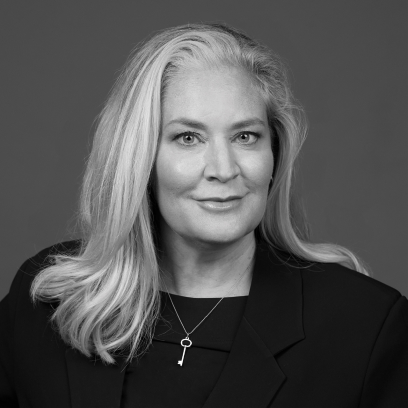

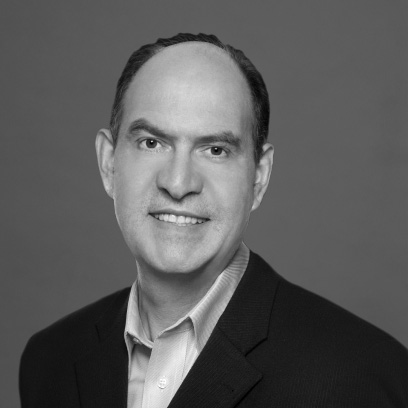







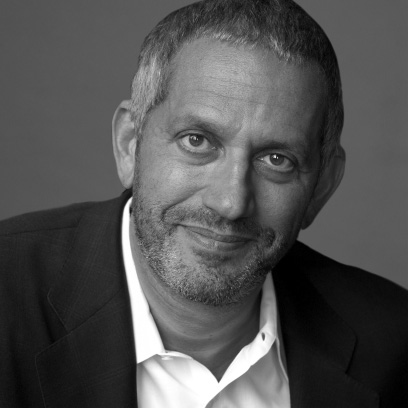
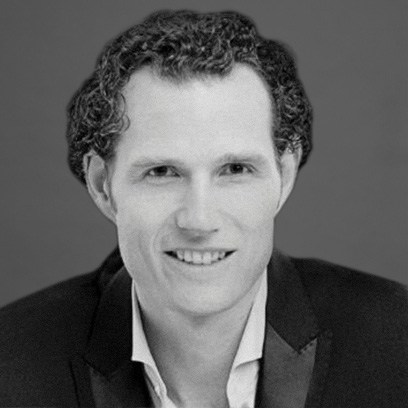
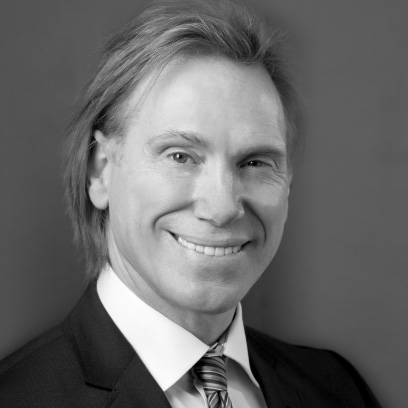

No comments:
Post a Comment